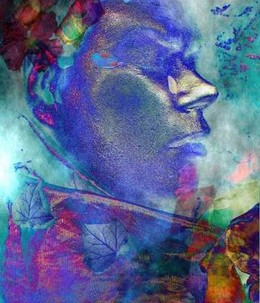About London Digital Art (Stephen Jackson)
First, let's get those boring links out of the way.
- If you'd like to see a large portfolio of my images, and order good prints of my own work from there, you'll find me at http://www.photoboxgallery.com/euphobia/collection?album_id=22274801.
- To watch me in interview and performance, have a peek at http://www.youtube.com/user/stephenjacks58
- To get a sense of what my book DEAD PEOPLE ON HOLIDAY is about, and if you'd like, to order a copy: http://www.amazon.co.uk/Dead-People-Holiday-Stephen-Jackson/dp/1450039685/ref=sr_1_1?ie=UTF8&qid=1297164227&sr=8-1
- To view my bibliography and profile as an author, http://booktour.com/author/34064.
Collectors, or anybody wanting to discuss or commission new work, would do far better to talk to me here.
- If you'd like to contact me direct, my email is stephen_jacks58@hotmail.com
Okay. Now for the blurb.
Stephen Jackson was trained in psychology and philosophy at St Andrews, only later as an artist and educator. He is author or editor of a dozen books as well as a journalist whose features appeared in The Independent, Time Out, Sunday Telegraph and national magazines. He also worked in television films, one of which won Crystal Prize at the Prague Festival; and he was cited by BBC Music and Arts as “a writer of the Upper-First Division”. But it was only in beating a bout of depression in the mid-1990’s that he discovered the magical potential of digital imaging to transform our preconceptions of what we imagine the world to be like… The resulting juxtapositions of his own fine art and poetry have been described as “fascinating and amazing” by Lisette Brodey, the US novelist. Elsewhere these visuals found acclaim as “hauntingly beautiful”: the words as “tight and life-enhancing.”
“A lot of what I explore now has to do with peeking up the wrong end of the telescope. I’ve sought to address the inner fears that each of us must tackle: including mortality, the need to make sense of what’s been gained and forfeited, and all those walking wounded in the universal and (some might say) necessary battlefields that litter human aspirations and language. There are few outright winners here, except of the most ephemeral kind. The tiny obsessions of middle age: the games all of us sometimes have to play - these are my canvas – and my occasions for humour and optimism. The memories of my own dark period, the fresh revelations of a subsequent sort of rebirth, offer endless avenues of inquiry as well as many new and welcome pleasures.”
Amongst the artists who delight (or at least, intrigue) Stephen Jackson are Odilon Redon, Bill Brandt: Ivon Hitchens: Rousseau, Rothko, William Blake, Chagall, Kandinsky, Edward Burra, Bonnard, Munch, Bacon, Frida Kahlo and Tamara de Lempicka; H R Giger, Ernst Haas, Georg Grosz, Francis Bowyer and Henri Cartier Bresson.
